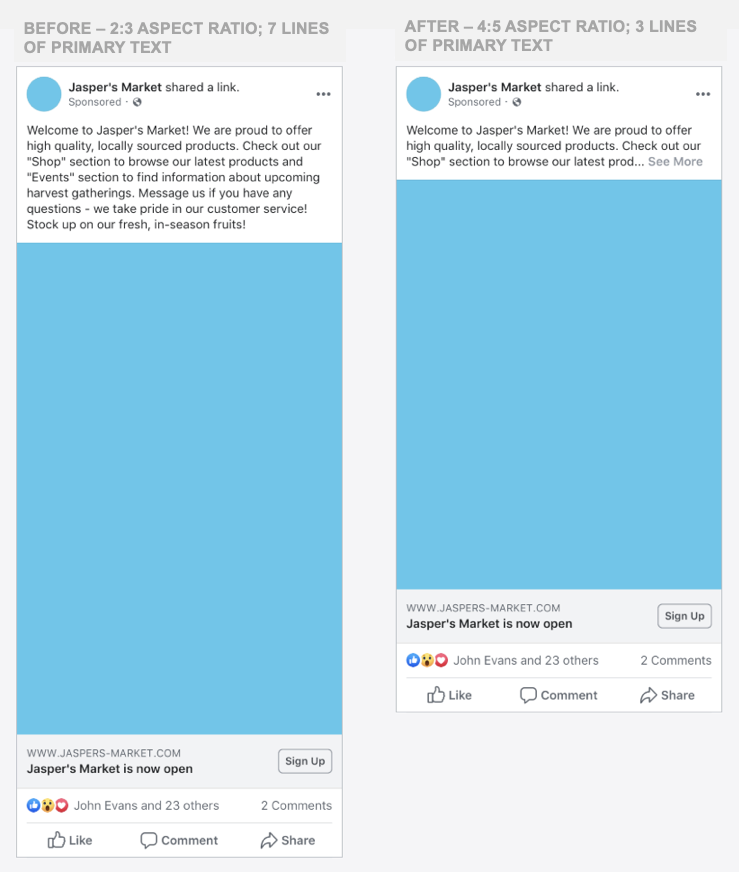Updates To Facebook Mobile Creative Specs – What Does It Mean For You?

Beginning August 19th, Facebook is rolling out two updates to mobile creative, both of which could have an impact on how advertisers approach their creative strategy.
The first is cutting down on the lines of primary text shown, while the second is setting a maximum media height (4:5) for photos and videos. This change includes both organic and paid posts.
Organic posts will update by the August date, while ads will switch over beginning September 2. This update applies to newly launched ads — existing, unedited ads that still have media taller than a 4:5 aspect ratio will stop delivering on September 19th.
The move comes after Facebook rolled out a new design earlier in the year. The hope is by setting new specs for mobile ads, the newsfeeds will look more consistent, thus providing a better experience for users.
The updates are also aimed at making it simpler to use the same assets for ads on both Facebook and Instagram, aiming to improve overall ad effectiveness between the two placements.

While on the surface these might seem like minor changes, for advertisers, there are implications for creative efficacy. If assets don’t fit within the 4:5 ratio, they will be masked in the feed, meaning users will have to click to view the entire image or video. This could potentially lead to decreases in click-thru rate and could reduce click volume and potential conversion volume as a result.

The decrease in lines of the copy shown will require brands to focus on succinct messaging with calls to action and urgency communicated up top. It will also affect how advertisers approach messaging on mobile versus desktop, where the copy specs are not changing.
With a few weeks, until this change rolls out, advertisers should begin conducting mobile copy tests around condensed ad messaging to gauge any potential effects of reduced text on CTRs.
Brands should begin working with their creative teams on updating videos and images to meet the specs ahead of time to avoid any implications of masking on their ad performance.
